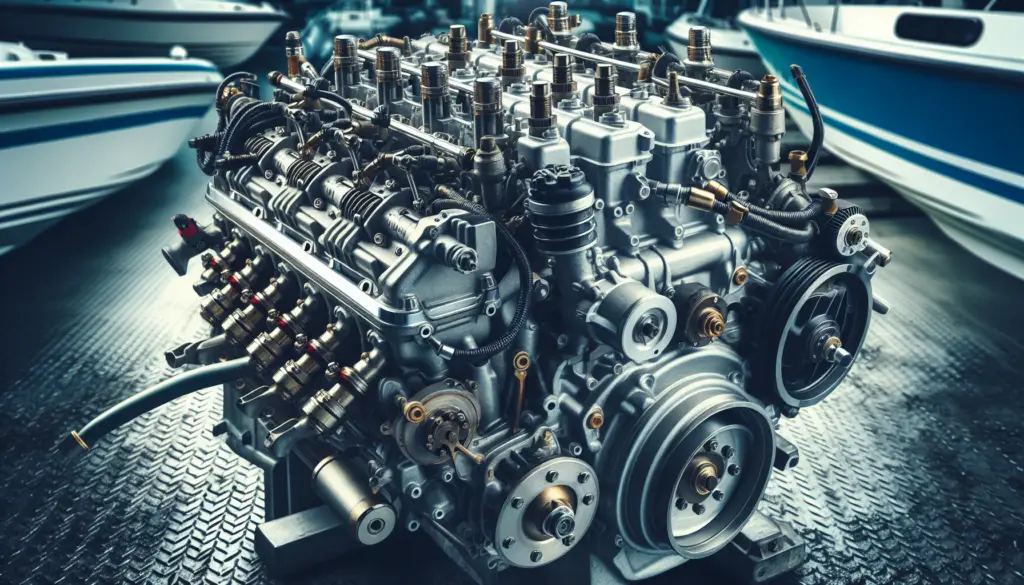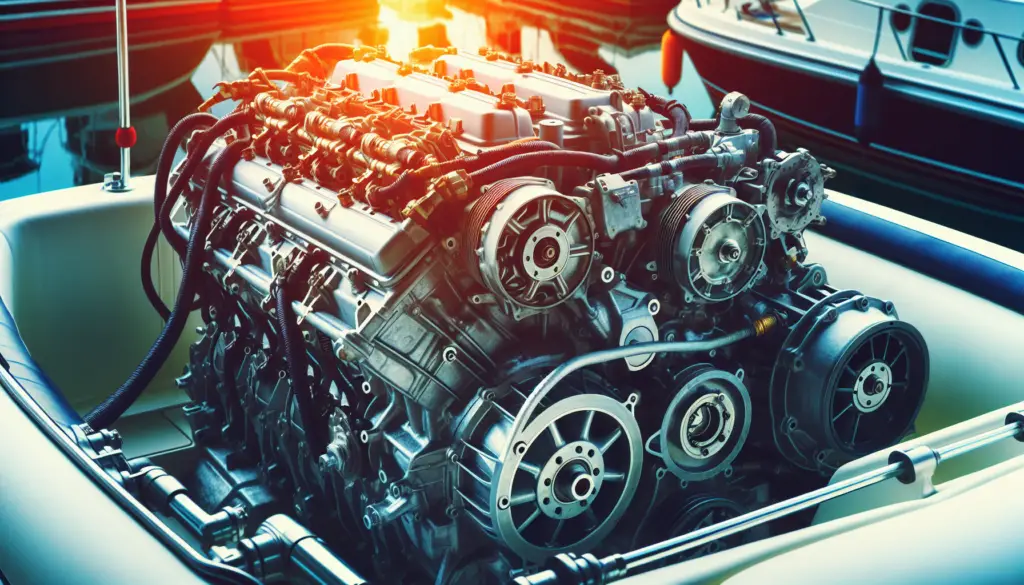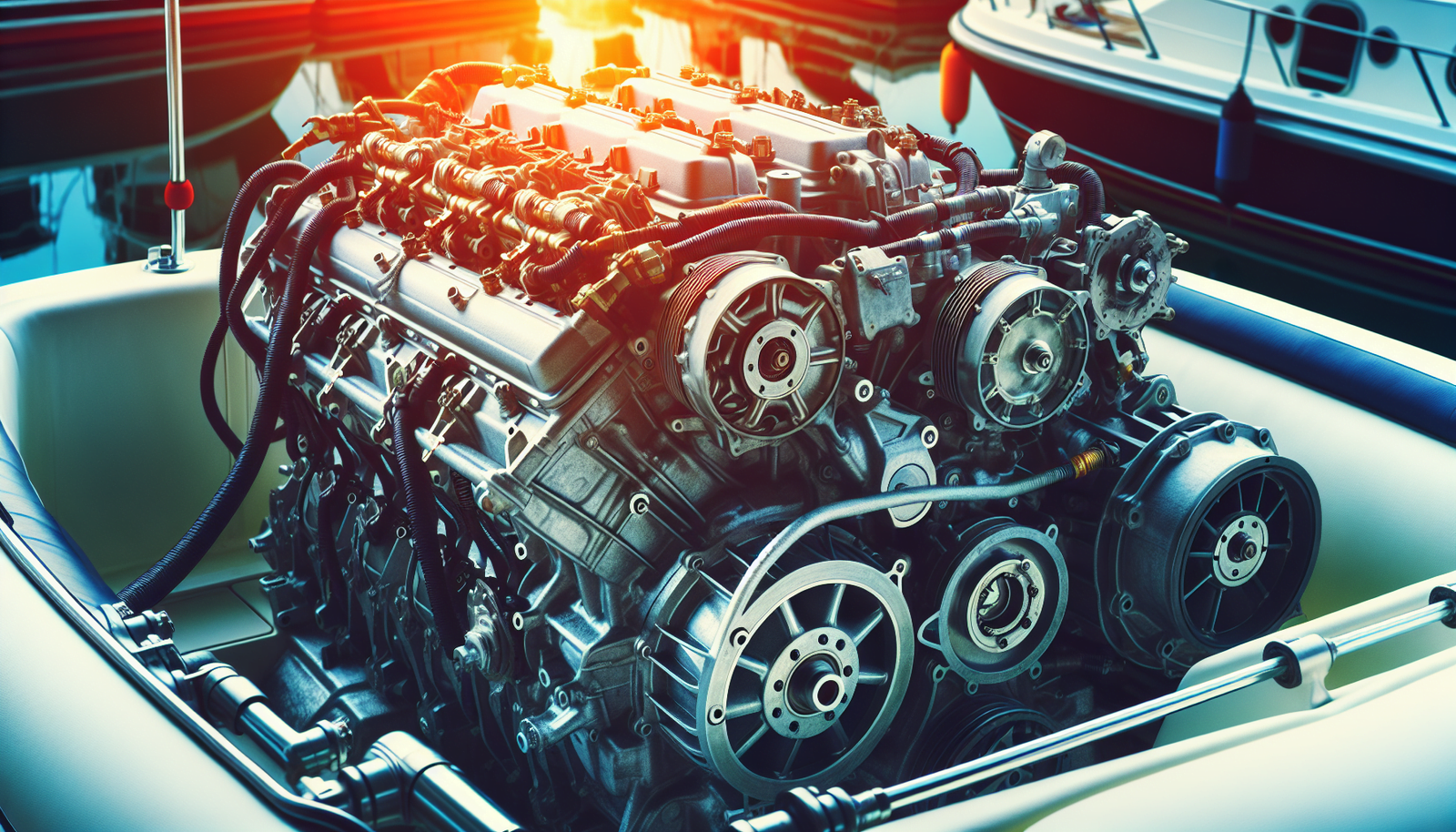Embarking on the journey to purchase a used boat engine can be a nerve-wracking task, filled with technical jargon and numerous considerations. This article serves as a comprehensive guide, shedding light on what factors you should keep in mind, from performance aspects to budget constraints, when you’re in the market for a used boat engine. Read on to ensure your boating adventures are powered by a reliable, value-for-money engine.

Understanding Your Boat’s Compatibility
When you’re in the market for a used boat engine, the first and most fundamental thing you have to consider is whether it will be compatible with your boat. Not all engines and boats are a good match for each other. And here’s how you determine if you’d be making the right choice:
Engine Type and Size Suitable for Boat
Different boats require different types of engines. Sailboats, for instance, use different engines than speedboats. Moreover, the size of the boat matters as well – a large vessel won’t run efficiently with a small engine and vice versa. So make sure you know what type and size of engine your boat requires.
Matching the Engine and Boat Weight
The engine’s weight needs to match your boat’s weight capacity. An engine that’s too heavy may cause your boat to become unbalanced and potentially unsafe. When choosing your engine, also consider the additional weight of fuel, water, appliances, and passengers the boat will be carrying.
Compatibility With Your Boat’s Brand and Model
Ensure that the engine is compatible with your boat’s brand and model. You could consult the boat’s manual or manufacturer to confirm the suitable type of engine for your specific model.
Checking If the Engine Fits Into The Boat’s Engine Bay
Don’t overlook the importance of ensuring that your potential engine will physically fit into your boat’s engine bay. Carefully measure the dimensions of the engine and also your boat’s engine bay before making your purchase.
Checking the Engine’s Condition
The condition of the engine will greatly affect its performance. Before purchasing a used boat engine, it’s crucial to give it a thorough check for any signs of wear or damage:
Physical Examination of the Engine
First, do a visual inspection. Look for any rust, cracks, or other signs of physical wear. The engine’s overall cleanliness can also indicate how well it was maintained by the previous owner.
Looking for Signs of Wear or Damage
You should carefully examine the boat engine’s parts, such as the belts, hoses, and alternators, to ensure they are in working condition and there are no signs of wear and tear.
Any Evidence of Leaks or Corrosion
Seeing any oil or fluid leaks around the engine could be a red flag. Also, check for signs of corrosion, especially in marine engines, as they are prone to rust due to saltwater exposure.
Assessing the Condition of Electrical Components
Inspect the condition of any electrical wires and connections. Damaged or frayed wires could lead to electrical problems down the line.
Verifying the Engine’s Maintenance History
A well-maintained engine can be a gem, even if it’s used. Here are some areas to explore regarding the engine’s maintenance history:
Requesting Maintenance Records
If possible, ask the seller for maintenance records. These will give you insight into the engine’s service history and whether it has been properly cared for or not.
Determining Frequency of Oil Changes
Regular oil changes are a significant factor in an engine’s longevity. Inquire about the frequency of oil changes, and if possible, look for an oil-change log.
Evaluating Previous Repair Work
Understanding what repairs the engine has undergone can give you a clue of what problems might reoccur. Make sure that all repair work was done by a professional mechanic.
Understanding Alterations or Modifications Made
If any alterations or modifications have been made to the engine, find out why they were done. Upgrades or changes may have been made to improve performance, but they can also cause compatibility issues down the line.

Examining the Engine’s Operability
Beyond the engine’s physical condition, it’s crucial to assess if it works correctly. Here’s what to do:
Making Sure the Engine Starts
Ensure that the engine Starts up without any problems. A used engine that’s hard to crank or won’t start could signal trouble.
Checking the Functioning of Gears
Verify that the gears shift smoothly and without any grinding noises. Difficulty in changing gears could spell potential future problems with the gear system.
Listening to the Engine Running
While the engine is running, listen for any unusual sounds. Knocking, pinging, or high-pitched sounds could indicate serious engine damage.
Observing the Exhaust While Engine Runs
While the engine is running, pay attention to the exhaust’s color and smell. Black, blue, or white smoke can be a sign of engine problems, as can a strong smell of oil or coolant.
Making the Necessary Checks for Safety
Your safety and the safety of others is paramount. Here are some safety checks to perform:
Assessing the Engine’s Safety Features
Ensure that safety features, such as the engine kill switch and the heat alarm, are in working order. These important tools are vital in preventing accidents and damage.
Checking for Carbon Monoxide Emissions
High levels of carbon monoxide emissions can pose a serious health risk. Check if the engine has been fitted with a carbon monoxide detector and ensure that it’s fully functional.
Verifying Fuel Lines and Connections
Cross-check the condition of fuel lines and connections. Leaky fuel lines are not only inefficient but can also pose a serious safety risk.
Ensuring the Engine Complies With Emission Regulations
Check if the engine complies with the emission regulations in your area. Non-compliance could result in penalties and might even limit where you can use your boat.
Considerations for Fuel Efficiency and Consumption
Fuel costs make up a significant portion of the operating costs. Therefore, understanding the engine’s fuel efficiency and consumption rate is crucial:
Learning About Engine’s Fuel Type
The type of fuel an engine uses can affect its efficiency and your operating costs. Diesel engines, for instance, often offer better mileage than gasoline ones but tend to be more expensive upfront.
Looking at Fuel Efficiency Ratings
fuel efficiency ratings give you an idea of how much fuel the engine uses under different conditions and how far it can go on a single tank. The more fuel-efficient an engine is, the less you’ll spend on fuel.
Calculating Potential Running Costs
Try to calculate the total costs associated with running the engine, including fuel, maintenance, and repairs. This will help you set a realistic budget for your boating activities.
Understanding Efficiency at Different Speeds
Engines consume fuel at different rates depending on their speed. Understand at what speed the engine is most fuel-efficient to optimize your boat’s running cost.
Analyzing the Age of the Engine
While age is an important factor, don’t discount older engines automatically. Here’s why:
Finding Out the Manufacturing Date
First, find out when the engine was manufactured. Even though an engine might be old, low usage could keep it in excellent condition.
Knowing the Engine’s Lifespan
Familiarize yourself with the average lifespan of the engine type you’re considering. Use this as a rough guideline to gauge if the engine is nearing its end or still has plenty of life left.
Seeking Older Engines With Low Usage Over Newer Ones With High Usage
An older engine with low usage could be a better buy than a newer one that has been run hard and poorly maintained. Always consider the engine’s overall condition in conjunction with its age and usage.
Identifying if Spare Parts Are Still Available
Ensure that spare parts for older engines are still readily available. Difficulty in sourcing parts will make repairs more challenging and possibly more costly.
Inspection by a Professional Mechanic
While you can carry out many checks yourself, having a professional mechanic’s opinion can provide peace of mind.
The Importance of a Professional Opinion
A professional mechanic will have the knowledge and experience to identify issues that you might miss. They can provide you with a comprehensive evaluation of the engine’s condition and its worth.
Finding a Reputable Marine Mechanic
Look for a marine mechanic with good reviews and a solid reputation. They’ll be more familiar with boat engines and their specific issues.
Understanding the Mechanic’s Inspection Report
Make sure you fully understand the mechanic’s report. Don’t hesitate to ask questions about any issues or concerns they raised, and how they might affect the engine’s performance or your safety.
Potential Costs Arising From Mechanical Issues
Based on the mechanic’s findings, calculate any potential cost to fix issues. These costs should be factored into your final decision about whether the engine is worth buying.
The Legal Aspects of Buying a Used Boat Engine
It’s crucial to ensure all legal aspects are in place before you finalize the purchase.
Checking for Outstanding Liens
Make sure the engine doesn’t have any outstanding liens against it. If it does, you could become responsible for them once you buy the engine.
Verifying Ownership and History
Ensure that the person selling the engine is the genuine owner and has the right to sell it. Also, try to get a full history of the engine’s ownership.
Ensuring Compliant Bill of Sale
Make sure you get a detailed bill of sale that includes a description of the engine, the selling price, and the seller’s information. This document will be necessary for legal purposes and might be needed for an insurance claim or warranty issue.
Understanding Warranty and Return Policies
Know the terms of the warranty and return policy, if any. Understand what they cover and what your responsibilities are.
Setting a Budget for Your Used Boat Engine
Consider the final component of buying a used boat engine: your budget.
Market Research for Used Boat Engines
Research the going prices for the type and model of engine you’re considering. See what they’re selling for in different conditions and with various amounts of usage.
Factoring in the Cost of Potential Repairs
Remember to factor in the costs of any repairs or modifications that might be required. These costs should be included in your total budget.
Understanding the Costs of Installation and Maintenance
Remember that the purchase price is only part of the total cost. You’ll also need to factor in the costs for installation, regular maintenance, and possibly higher insurance premiums for a larger or more powerful engine.
Negotiating the Price Based on Your Findings
Based on all the information you’ve obtained, don’t be afraid to negotiate the final price. Your findings about the engine’s condition, the cost of repairs, and the current market prices, could yield you significant savings.
In conclusion, selecting a used boat engine is a complex process that involves careful inspection, consideration, and calculation. By following these guidelines, however, you can ensure your chosen engine matches your boat, works well, and offers value for money.

